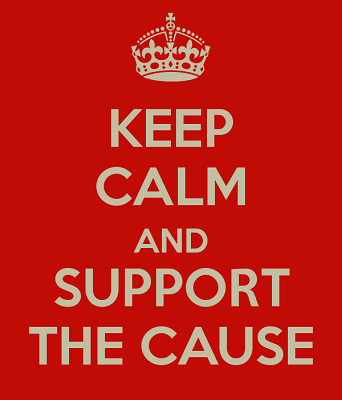In a previous article, I covered the biggest mistakes that people make when emailing agents for celebrity bookings, but this time I wanted to cover the biggest mistakes people make when contacting any representative. Are you thinking about contacting a celebrity’s representative as a strategy for building your brand, interviewing a celebrity for your blog, or raising funds for your non-profit? It can be difficult to connect with busy reps, but you can make it a lot easier on yourself if you avoid the biggest mistakes most people make when contacting agents, managers, or publicists.
1. Ignoring the value of the representative’s time.
No, the agent, manager, or publicist is not the celebrity. But, yes—they are busy, too. And, that means you can’t just assume that they have time available to listen to your proposal. For instance, if you send an email, don’t say things like, “just give 30 minutes of your time.”
A publicist, for example, is responsible for managing their client’s public image, media relations, and events. That means putting in long hours, often seven days a week.
Time is worth a lot to someone who is managing the schedule and interests of a celebrity. Trust me, they really don’t have that 30 minutes, so if you want to be more likely to get a “yes” from them, get straight to the point and give them the information they need up front.
A better approach is to reach out in a way that lets them know you understand their limited time and that you don’t want to waste it. To do that, follow these key email etiquette steps:
- First of all, contact the right person. Each celebrity representative plays a specific part in the celebrity’s career. If you are looking to book the celebrity to play at a concert, you wouldn’t contact his publicist. You’re devaluing both your time and theirs if you don’t bother to research who you need to contact for your specific request.
- Provide a clear subject line. Don’t try to trick them into reading with a gimmick. The email subject line should state what you’re contacting them about directly and briefly.
- Keep the body of the email brief. If they are interested and need more details, they will contact you.
- Start with a sincere compliment or congratulations that lets them know you’ve put in the time to research a little about who they are and what they do. Or, let them know that you’re aware of a problem they need solved and that you’d like to help.
- You should clearly state in a few lines exactly how you think you could help them out.
The bottom line is you’d better be ready to give them something that is worth their time.
And that brings us to…
2. Reaching out without having something valuable to offer.
Whatever you are proposing to the celebrity representative, it needs to be something that will truly benefit them or their clients. Can you save the rep time? Make their schedule easier to manage? Provide additional exposure to their client? It can be intimidating to contact a celebrity representative, but the truth is that your business often really does have something of value to them.
Benefitting the celebrity is not always about offering them more money. The campaign for PassionRoses reached out to the right celebrity at the right time by helping Jason Derulo make a grand romantic gesture to his girlfriend, Jordin Sparks. PassionRoses provided 10,000 roses to fill a suite for the couple, and they agreed to post photos of the roses to their social media pages in return. The result was phenomenal news coverage for everyone involved.
Make sure you know what benefit you are offering before you ever contact the agent, manager, or publicist. If you really can’t think of any way that the partnership would benefit the celebrity or their representative, then you are wasting their time and your own by contacting them.
Another example of a useful way to approach a celebrity rep is to work with a charity. Many celebrities have favorite charities or causes that they prefer to work with. If you can find a celebrity whose cause matches that of your business, it’s a good way to build a relationship with them. It shows that working with you contributes to something that is already important to them. Find the overlap between your audience and that of the celebrity. Miley Cyrus is one of the most charitable celebrities today, and MAC Cosmetics took notice of Cyrus’s desire to help. They created a line of lipstick that specifically advocates for HIV/AIDS prevention. While MAC increases sales, they’re also helping Miley to help a cause she cares about.
But, you don’t have to carry a physical product to have something to offer. If you run a blog or an online magazine, you may be able to help the celeb enter a target audience they are having difficulty breaking into or expand their current niche. Timing is important in this case. If you are just starting out and don’t have traffic to your site or a respectable readership for your magazine, it’s going to be extremely difficult to get a celebrity or their rep to see an advantage to working with you, unless your background shows that you’ve had a successful blog or magazine previously.
Once you’ve established that you can bring in traffic, that’s the time to think about contacting a celebrity rep. Because celebrities are public figures, their publicists are often on the lookout for the best media outlets. The same is true for event planners. You offer the unique ability for celebrities to connect with niche audiences. Look for celebrities who are trying to break into the demographic that your event caters to.
It pays to be a problem solver. Each of us encounters problems in our daily tasks, and celebrity reps are no exception.
3. Not targeting your communication specifically to the individual.
One of the absolute worst things you can do when contacting a celebrity rep is use the same scripted lines for each person you contact. Why? Because the script likely won’t apply specifically to every agent, manager, or publicist you contact, and they will be quick to call you out on your error.
It’s okay to have a general template to help you save time, but you still need to make each interaction genuine. Do your research before you attempt to contact someone with a request. You should know exactly what the celebrity does and what they’re about. And, you should know the specific problem you can solve for them—not a generic solution that you are pushing.
If you don’t make the effort to know what you’re talking about ahead of time, you signal to the representative that their time is not valuable to you, and even worse, you’re indicating that you were too lazy to put in time and effort yourself.
If you have a real opportunity to reach out to a celebrity representative to form a mutually beneficial relationship, prepare yourself and make the contact count.
4. Looking for immediate benefit to yourself.
Sometimes a deal can be made fairly quickly. But, other times, the benefit to your business is simply the contact that you’ve made. Maybe a particular celebrity rep is not in the market for what you have to offer at this time. That doesn’t mean that they won’t remember your professionalism when an opportunity arises in the future.
Rather than basing each interaction on what you get from it, start realizing that building those relationships is extremely valuable, even if you don’t get what you wanted. Being known as someone who is easy to talk to and work with is an invaluable resource to your business. Most importantly, don’t be a jerk if you get a “no” from a representative.
5. Going on and on.
Busy reps get hundreds of emails every day. Making your email go on for too long shows that you’ve overestimated how much time they have to give you. It’s understandable that you think your business is extremely valuable and important, but they don’t know that until you convince them. And, if you write an essay on the topic, your email likely won’t get read.
The tactics you might use for a landing page—leading the customer to continue reading by offering juicy tidbits of info—does not work for emails to agents, managers, or publicists. Why? Because unlike a customer on a landing page, the rep is not in the market for your services. Or if they are, they don’t know it.
That means you have to use a different tactic. Keep in mind you may be cold-contacting someone who has never heard from you before. They’re immediately going to scan your email for “What’s in it for me?”
Stick to the most important points. And, don’t try to tease them—state the information they need from you directly. If they’re interested, the follow-up conversation is where you can lay out your whole story.
6. Only trying once.
There could be any number of reasons why you don’t get a response from a celebrity rep. It could be a mistake you made, but it could just as likely be that they missed your email or simply didn’t have time to read it. In fact, no response is likely the most common response you’ll get when you first start building relationships with agents, managers, and publicists.
Just because you didn’t get a response the first time doesn’t mean you can never contact them for another try. But, there’s a happy medium. Give a little time before you send a second email. In fact, even if you do get a response but it’s “no”, you shouldn’t be afraid of trying again at a later date. Remember, when you get turned down, it’s rarely personal. The rep may just be too busy with other projects at the time.
But, following up is not the same as spamming. If you start sending an email every week, you’ll likely find yourself on the reps blocked list—the most surefire way not to get your message read. If an initial 1-2 week follow-up yields nothing, give it 6 months to a year and try again.
What you should do now
The first step is planning. Don’t jump into celebrity outreach blind.
- Consider what your company needs from the celebrity
- Consider what you have to offer in return
- Think about the image you want to convey and whether the celeb matches it
- Find contact information for the right agent, manager, or publicist
- And, be smart about making contact by using the tips provided here









